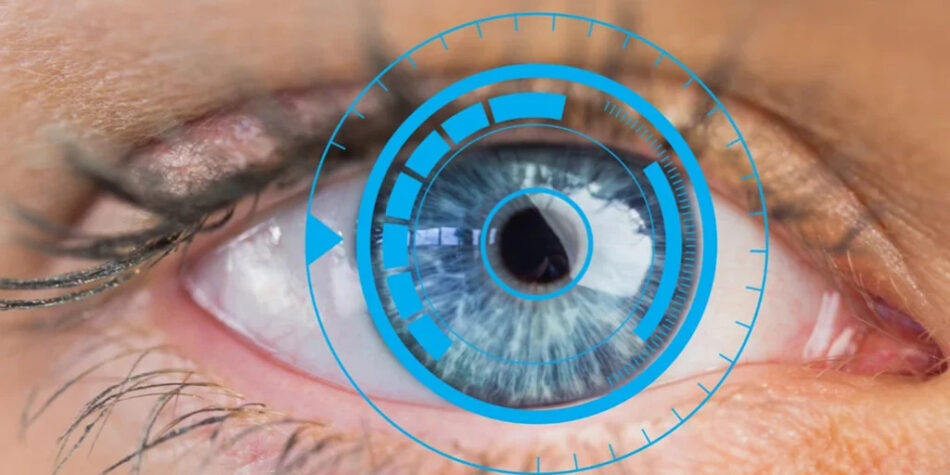Introduction:
The eyes are among the most delicate organs in the body, and for those living with diabetes, they need special attention. Over time, uncontrolled blood sugar levels can silently damage the retina — the light-sensitive tissue at the back of the eye — leading to a condition known as diabetic retinopathy.
In its early stages, this condition often shows no symptoms, yet it can progress to serious vision loss if left untreated. This is where Diabetic Retinopathy Medication, combined with timely diagnosis and regular eye care, plays a crucial role in preserving sight and quality of life.
What Is Diabetic Retinopathy?
Diabetic retinopathy occurs when high blood sugar damages the tiny blood vessels that nourish the retina. These vessels may swell, leak, or become blocked, affecting the retina’s ability to process visual information.
Over time, new, abnormal blood vessels may form on the retina’s surface. These fragile vessels can bleed or cause scar tissue, increasing the risk of permanent vision loss. Early detection and treatment with Diabetic Retinopathy Medication can significantly slow or even prevent this progression.
Why Early Care Makes a Difference
Vision loss from diabetic retinopathy doesn’t happen overnight. It develops slowly, which means early care offers the best chance of protection. Many people don’t realize they have retinal damage until their sight starts to blur.
Regular eye health checkups allow doctors to detect minute changes in the retina before symptoms appear. When caught early, Diabetic Retinopathy Medication and other therapies can be started promptly, preventing further damage and preserving vision for years to come.
Types of Diabetic Retinopathy Medication
Modern medicine offers several treatment options designed to control or reverse retinal changes caused by diabetes. Each patient’s condition is unique, so the choice of Diabetic Retinopathy Medication depends on the severity and stage of the disease.
- Anti-VEGF Injections – These medications help stop the growth of abnormal blood vessels in the retina. By reducing leakage and swelling, they improve vision and slow disease progression.
- Corticosteroid Injections – Used when swelling (macular edema) is present, these reduce inflammation and fluid buildup in the retina.
- Oral and Topical Medications – In certain cases, tablets or eye drops may help manage associated conditions like inflammation or blood pressure that worsen retinal damage.
When used under expert supervision, these medications can be powerful tools in stabilizing or improving sight.
The Role of Regular Eye Health Checkups
For diabetic patients, annual or bi-annual comprehensive eye exams are essential. These checkups allow specialists to identify even the earliest signs of retinal changes.
During these visits, eye doctors use advanced diagnostic imaging to assess the retina’s condition. If abnormalities are detected, appropriate Diabetic Retinopathy Medication can be started immediately. Early detection means easier management, fewer complications, and better long-term outcomes.
An eye checkup isn’t just about testing vision — it’s about safeguarding the future of one’s eyesight.
Lifestyle and Medication: Working Hand in Hand
Medication alone cannot fully control diabetic retinopathy. It must be complemented by proper lifestyle habits and diabetes management. Maintaining stable blood sugar levels, eating a nutrient-rich diet, exercising regularly, and avoiding smoking all contribute to the success of Diabetic Retinopathy Medication.
Patients are also encouraged to follow their prescribed treatment plan diligently. Missing doses or delaying follow-up visits can undo the progress made through medication and care.
Consistent effort from both the patient and the eye specialist ensures the best possible protection against further vision loss.
When to See an Eye Specialist
Any diabetic patient should schedule an eye examination as soon as they are diagnosed with diabetes, even if their vision seems fine. Blurred or fluctuating vision, dark spots, or difficulty seeing at night may be warning signs that it’s time to see a specialist.
At this stage, Diabetic Retinopathy Medication may be recommended along with lifestyle guidance and monitoring. The goal is always to preserve vision before irreversible damage occurs.
Patients should never wait for symptoms to appear — prevention and early care remain the most effective tools in protecting eyesight.
The Importance of Expert Care
Treating diabetic retinopathy requires both precision and compassion. An experienced retina specialist can accurately diagnose the stage of the disease and customize treatment plans accordingly.
Hospitals equipped with advanced retinal imaging and injection therapies can provide better, safer outcomes. Having a knowledgeable team to monitor progress, adjust Diabetic Retinopathy Medication, and offer guidance ensures long-term eye health stability.
A patient-centered approach not only treats the condition but also builds confidence and reassurance for those living with diabetes.
Emerging Advances in Diabetic Retinopathy Medication
Ongoing research continues to improve outcomes for diabetic patients. New-generation anti-VEGF drugs, slow-release implants, and combination therapies are making treatments more effective and convenient.
Some innovations allow longer intervals between injections, reducing hospital visits while maintaining excellent results. Personalized medicine — tailoring Diabetic Retinopathy Medication to the patient’s unique condition — is quickly becoming the future of diabetic eye care.
These developments bring renewed hope for preserving vision and enhancing quality of life for diabetic patients worldwide.
How Early Care Protects Your Vision
Early care is not just about medication; it’s about awareness, consistency, and partnership between patient and doctor. By managing blood sugar and blood pressure, attending regular eye checkups, and following through with prescribed Diabetic Retinopathy Medication, patients can dramatically reduce the risk of severe vision loss.
Once vision is lost to advanced diabetic retinopathy, it’s often irreversible. That’s why timely treatment and ongoing monitoring are the strongest defenses against blindness. Protecting sight today ensures the freedom to live fully tomorrow.
Conclusion:
Managing diabetic retinopathy is a lifelong journey that demands expert attention and compassionate care. Choosing a hospital with skilled retina specialists, advanced imaging technology, and a patient-first approach makes a world of difference.
A super speciality eye hospital like MaxiVision Eye Hospital provides comprehensive care — from early screening and accurate diagnosis to customized Diabetic Retinopathy Medication and long-term follow-up. Its team of specialists ensures that every patient receives precise, ethical, and empathetic care tailored to their needs.







